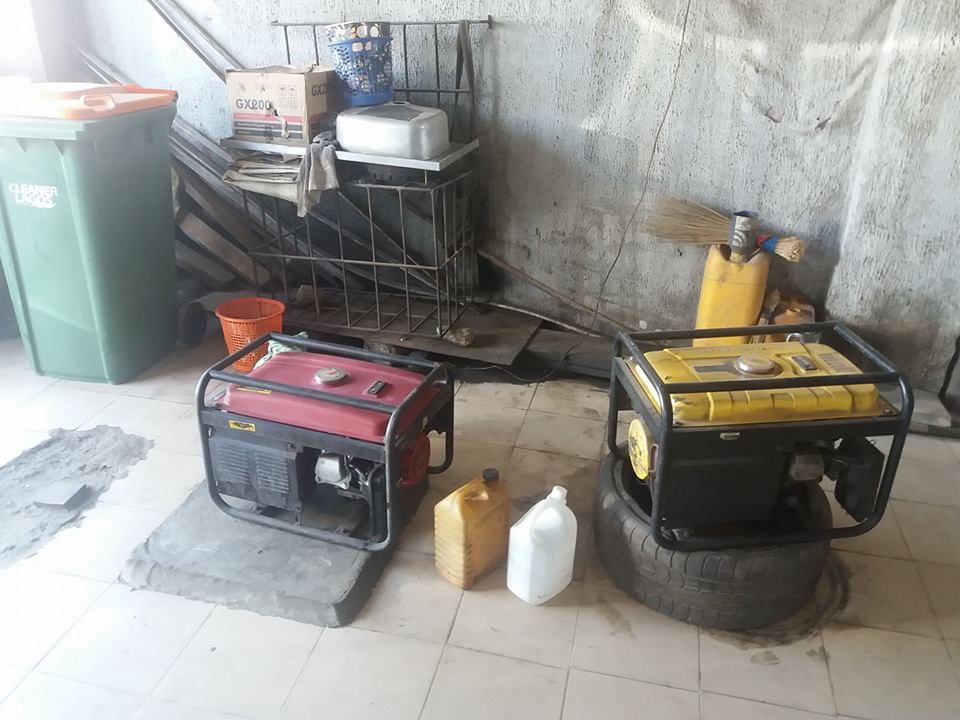
Like much of sub-Sahara Africa, Nigeria has a woefully inadequate electricity grid. Nigeria is also easily the continents most populous nation (45 percent larger than second-ranked Ethiopia with 196 million people) and its biggest economy (18 percent higher than number two Egypt with gross domestic product of $403 billion).
That means lots of activity without much access to installed electricity. So whats powering it? Portable generators running on diesel and gasoline, used by countless businesses and households. It takes a remarkable amount of lubricants to keep these machines operating – between 35 percent and 40 percent of the nations total industry demand, according to Kline & Co. consultants.
Nigerian blenders said the market for lubricants for electric generators is strong in their country because its unreliable electricity supply makes generators so popular.
Economists call that method of energy generation sadly inefficient, but many observers agree the situation in Nigeria wont change significantly any time soon. Which means those generators will remain a large source of demand for lubricant suppliers.
Some suppliers interviewed for this article debated the accuracy of Klines estimate, but all agreed that generators use lots of lubricant in Nigeria.
So did Dapo Babatunde of Rosetop Nigeria Ltd., in Lagos – one of the countrys leading generator maintenance companies.
To me it is a conservative figure because for every factory you have a generator, and the engine oil used in generator is more than the volume used in lubricating machine parts, said Babatunde. From my experience as a factory worker in the early phase of my career, you dont just add engine oils in the machine. It is merely to lubricate, but you use more in the generator, which could gulp as much as 200 liters per day. [Other] machinery may not use oils in all instances. It could use grease in some instances.
Babatunde explained that there are two kinds of generators in Nigeria – those powered by diesel and those running on petrol. The former use the same engine oils used by diesel-powered vehicles.
If it is a petrol-powered generator, we use the same engine oil as for a petrol-powered vehicle is also used for the generators, said Babatunde. He added that he buys engine oils from filling stations. However, most households source lubricating oil for their generators from filling stations or the street shops, which have been widely cited for peddling adulterated oils.
Some end users of generators said they run their generators for between 6 and 12 hours daily. I use a Fireman 3.8 HP SFE110 generator, and I run it for 12 hours every day, said one resident in Lagos, Nigeria. Another said he runs his generator for between four and six hours daily. Some end users said they dispose of used oil into the local drainage system, while others said they leave it with their technicians, who service their generators.
Babatunde said that when he services a generator, he makes a personal commitment to not leave with clients engine oil because if you go with it, they will think you are making money from it.
I tell them, your filter, I smash it and your engine oil, I put it in a keg for you. I know that some people buy the used the engine oil for other purposes. I advise them not to pour it in the gutter, he added. Most of the respondents reported that generator servicing ranges from one month to six weeks.
However, Babatunde said he advises his clients to service their generator sets within a 250-hour interval. The basic [interval] is 250 hours because on the generator set there is a meter that counts the hours as far as the generator is functional. So we advise them to change it at 250 hours interval. It is now left to them to stick to your advice or not, he said.
On the other hand, Nigerian blenders forecast that the generator lubricant segment in the country will remain attractive because in their views the power situation in the country will not improve in the foreseeable future.
Niyi Okedairo, chief operating officer for Ranod Oil and Gas West Africa Ltd., emphasized that the hope of fixing the problem of frequent power failures in Nigeria may not materialize in the near term. The situation will remain the same in the next five years, he told Lube Report in a phone interview. It may be [improved] in 20 years time; the situation will change, but for now, there is no hope it will improve.
Photo courtesy of Ifeanyi Nzete
